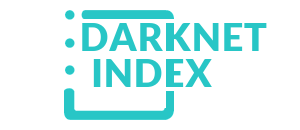The darknet, also known as the dark web, is a concealed section of the internet that's inaccessible via standard search engines. You can only access it using special software, settings, or authorization. This area comprises websites and content that are purposely kept hidden from public view.
Accessing darknet requires using Tor Browser, a special web browser that routes your internet traffic through a global network of relays managed by volunteers. This way, it becomes very difficult to trace which websites you're visiting, and these sites won't know where you are located.
When visiting the dark web, use a secure browser like Tor, do not reveal any of your personal information, and don't open suspicious files or links to stay safe.
The Darknet is often utilized for secure communication, discreet information or file sharing, anonymous research without identity exposure, and occasionally for engaging in illicit activities. It is also recognized for hosting underground black markets(darknet markets), whistleblowing platforms, and discussion boards that champion freedom of speech.
While accessing Darknet Markets themselves is typically not against the law in most places, engaging with illicit goods within them is generally considered a crime. On the other hand, some people might visit Darknet Markets for lawful purposes such as research, journalistic work, or simply to explore online communities. It's essential to know the local laws regarding online activities, and be cautious when using these platforms to avoid any potential issues.
U.S. Sanctions Iranian Behind Nemesis Darknet Market for Drug Trafficking and Cybercrime
The U.S. Treasury Department recently slapped sanctions on an Iranian individual accused of running the Nemesis darknet market, a shady online platform used for trading illegal stuff like drugs and cybercrime services.
The Nemesis darknet market was taken down in March 2024 following a joint law enforcement effort from the U.S., Germany, and Lithuania. After the takedown, German authorities revealed that over 150,000 user accounts and more than 1,100 seller accounts were registered on the market, which operated on the Tor network, making it harder to track.
The Nemesis darknet market was a hotspot for drug trafficking, stolen goods, and cybercrime activities like DDoS attacks, phishing, and ransomware. The U.S. Treasury Department placed sanctions on Behrouz Parsarad, an Iranian believed to be the main operator behind the market.
The sanctions mainly focus on the Nemesis darknet market’s involvement in the narcotics trade, as authorities say the platform facilitated nearly $30 million worth of drug sales between 2021 and 2024. Parsarad allegedly had full control over the market and its cryptocurrency wallets, pocketing millions in fees from every transaction. He also reportedly helped users launder their illicit funds.
Even after the shutdown, Parsarad was reportedly discussing plans to create a new darknet market to replace Nemesis, hoping to bring back the vendors who once sold on the platform.
